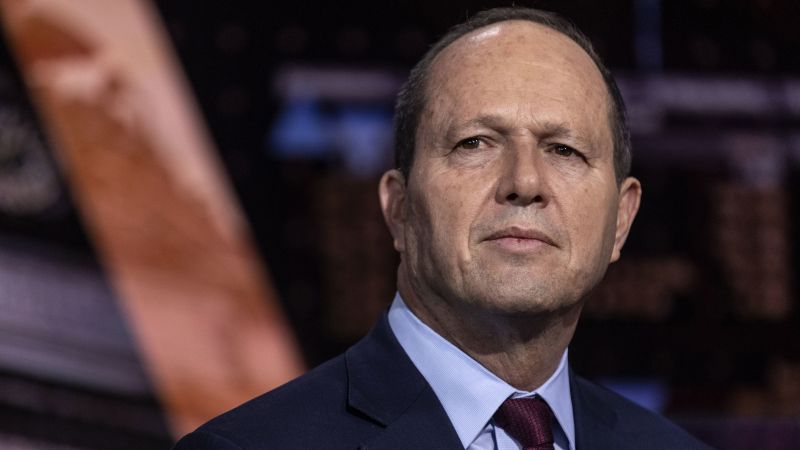Nir Barkat, Israel’s minister of economy and industry, is warning American universities to crack down on antisemitism.
“Schools that prioritize taking money instead of doing what’s right and doing good are going to have a serious problem,” Barkat told CNN on Thursday.
Speaking from a Manhattan hotel, Barkat said his recent conversations with lawmakers during his trip to the United States suggest there will be legislative efforts to crack down on antisemitism on campus.
“You’re going to see many funders of Ivy League and other universities shy away from that behavior,” he said.
Barkat argued that schools that failed to fight antisemitism are “going to be paying a heavy price for that.”
Tensions have been running high on some college campuses since last month’s Hamas terror attack on Israel and in the wake of the Hamas-Israel war.
Students have held hundreds of protests and counterprotests and some of them have turned violent. Violent antisemitic threats were made against faculty members at the University of Pennsylvania, prompting the FBI to investigate. The faces and names of some students allegedly linked to anti-Israel statements were displayed on “doxxing trucks” near the Columbia and Harvard campuses.
“The Hamas attack opens up antisemitism all over the world, especially here in the United States,” said Barkat.
Powerful donors at Ivy League schools have voiced their displeasure with alleged antisemitism and vowed to close their checkbooks. Private-equity billionaire Marc Rowan organized a campaign calling for a leadership change at the University of Pennsylvania. Dozens of UPenn backers have promised to halt donations, including former US Ambassador Jon Huntsman, “Law & Order” creator Dick Wolf and private equity executive Edgar Bronfman, Jr.
Asked about the donor backlash facing some schools, Barkat, the Israeli minister, said donors have “internalized what happened on October 7th.”
“The theoretical threat – what’s on the charter of Hamas and other organizations that hate Jews and want to eliminate us – it’s not theoretical,” said Barkat, who is also a founder and former chair of cybersecurity firm Check Point.
The Israeli official said there must be an attitude change and a willingness to “fight them everywhere – including on the campuses.”
“Terror is multiplication. You multiply the will to create terror and the ability to create terror,” Barkat said. “On campuses, you fight the will. Stop trying to eliminate the only Jewish democratic state. We won’t accept that.”
Under pressure from donors, some universities recently rolled out new steps to counter antisemitism and hate.
Columbia University announced a task force on antisemitism on November 1 to address what the school described as an “ancient, but terribly resilient, form of hatred.”
That same day Liz Magill, the president of the University of Pennsylvania, announced an action plan on November 1 designed to fight antisemitism.
“For generations, too many have masked antisemitism in hostile rhetoric. These reprehensible messages are an assault on our values and cause pain and fear for our Jewish community,” Magill wrote on Instagram condemning antisemitic messages posted on university buildings. “Projecting hateful messages on our campus is not debate, it is cowardice, and it has no place at Penn.”
Barkat said that during his time in New York and Washington he has found “very strong” support for Israel.
“We have seen bipartisan support in Washington that we have not seen for decades,” he said.
However, Congress has struggled to deliver a proposed $14 billion emergency aid package to Israel. That package, which includes air and missile defense aid as well as funds to support the Iron Dome, has been stalled by political infighting.
Barkat described the aid package as crucial and “important to help us win the war” but stressed that the challenges in getting it through Congress are procedural rather than a lack of willingness to help.
The Israeli official praised President Joe Biden for “unwavering support,” including his wartime visit to Israel.
“We have good memories, and we know who our best friends are,” Barkat said. “Stepping up to support Israel and create a package that is very important for us, in a bipartisan way, is something we will never forget.”
Read the full article here





